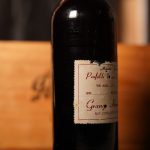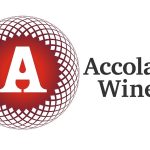CHEAP wine would become more expensive but the cost of spirits could drop under a new push for an overhaul of alcohol taxation.
As the Federal Government considers options tax reform options to take to the next election, which must be held by mid-January 2017, the Distilled Spirits Industry Council is calling for all alcoholic beverages to be taxed according to alcohol content.
The wine industry argues its products should continue to be taxed according to value.
The distilled spirits industry has complained that ready-to-drink spirits and flavoured cider are taxed at about $1.01 per standard drink, while cheap cask wine is taxed at just 5c per standard drink.
Distilled Spirits Industry Council general manager Gordon Broderick wants the Government to consider a recommendation from the Henry Tax Review for a volumetric tax to be imposed on all alcoholic beverages to help reduce the social impact of problem drinking.
Mr Broderick criticised proposals for a minimum or floor price on alcoholic drinks.
“Measures should be focused on eradicating and punishing unacceptable behaviour linked to irresponsible alcohol consumption,’’ Mr Broderick said in a submission to a Senate inquiry into the “nanny state’’.
Australians aged over 15 years drank the equivalent of 9.7 litres of pure alcohol each in 2013-14, down from 13.1 litres in 1974-75.
Winemakers’ Federation of Australia chief executive Paul Evans told the inquiry that more needed to be done to address problem-drinking, but higher taxes were not the solution.
“We strongly reject increasingly strident rhetoric from interest groups seeking to deny wine’s legitimate and accepted place in modern society as part of a balance and lifestyle and a healthy diet and their push to effectively punish responsible drinkers through a range of command and control policy measures, including tax rises,’’ Mr Evans said.
A report commissioned by the Foundation for Alcohol Research and Education earlier this year found that the Federal Government could raise an additional $1.4 billion per year if wine was taxed according to alcohol content, which could raise the tax per standard drink for cask wine to about 73c.
The foundation argues that increasing the price of alcohol leads to a reduction in heavy drinking among young people and underage consumption of alcohol.
Despite the fact alcohol excise rates increase two times per year, the Federal Government’s pre-Christmas budget update showed cash receipts from beer and wine taxes had fallen slightly for the second year in a row.
The update showed the government was likely to receive $1.97 billion from taxing spirits by the end of the financial year — down from an estimated $2.03 billion.
Beer excise revenue was on track to be slightly lower than the $2.39 billion estimated in May.
Cash receipts from the Wine Equalisation Tax are on track to hit $840 million — up slightly from $820 million estimated in the May Budget.
The most recent National Drug Strategy Household Survey show that the number of Australians who drink alcohol every day fell to a record low of 6.5 per cent in 2013.















